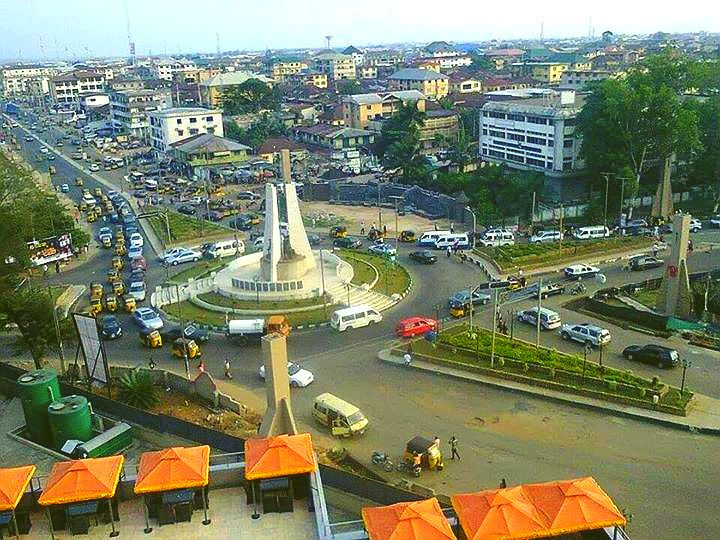Lifestyle
Top 10 Most Expensive States To Live In Nigeria In 2025

Nigeria’s headline inflation rate has dropped to 24.48% year-on-year in January 2025, following the rebasing of the Consumer Price Index (CPI), according to data released by the National Bureau of Statistics (NBS).
There is a decline in the general price level of goods and services compared to 34.80% in December 2024, which was calculated using the previous methodology.
The recent rebasing of Nigeria’s CPI by the NBS significantly altered inflation metrics across the country.
The NBS updated the base year from 2009 to 2024, revised the weighting structure to reflect current spending patterns, and expanded the product basket to better capture household consumption. The shift from the Dutot index to the Jevon index also improved price measurement accuracy. While the revised CPI figures suggest lower inflation, the reality for many households remains unchanged, as food and essential goods continue to drive up living costs.
However, despite this methodological change, regional disparities in the cost of living persist, with some states remaining significantly more expensive than others.
Below is a ranking of the 10 most expensive states in Nigeria as of January 2025:
10. Kano
Kano ranks as the tenth most expensive state in Nigeria, with an all-items inflation rate of 12.51 per cent in January 2025, a sharp decline from the previously recorded 35.81 per cent in December 2024. Food inflation in the state also fell significantly from 40.39 per cent to 12.34 per cent following the rebasing. The drastic reduction in these figures reflects the NBS’s adjustment in the CPI methodology, which now incorporates a broader and more representative consumption basket. Despite the changes, Kano remains one of the priciest states, with food prices and general living expenses still exerting pressure on household incomes.
9. Borno
Borno is the ninth most expensive state, with an all-items inflation rate of 12.52 per cent in January 2025, down from 32.05 per cent recorded in December 2024. Food inflation experienced an even sharper decline, dropping from 41.69 per cent to 10.49 per cent within the same period. However, persistent supply chain disruptions, exacerbated by security challenges in the region, continue to push up costs, keeping Borno among the most expensive states despite the methodological adjustments.
8. Zamfara
Zamfara’s all-items inflation rate fell from 39.63 per cent in December 2024 to 13.82 per cent in January 2025, while food inflation dropped from 46.39 per cent to 11.81 per cent. The state has historically recorded high inflation figures due to logistical challenges affecting the distribution of goods, particularly food items. Food remains a major cost driver in the state, and despite the lower reported inflation, affordability remains a key concern for residents.
7. Rivers
Rivers State remains one of the costliest states in Nigeria, with an all-items inflation rate of 13.84 per cent in January 2025, a decline from 33.32 per cent in December 2024. Food inflation also dropped from 35.43 per cent to 12.27 per cent over the same period. As a major oil-producing state, Rivers experiences higher living costs, particularly in services and housing. The cost of essential services, particularly accommodation and transport, remains a significant burden on residents.
6. Enugu
Enugu ranks sixth among Nigeria’s most expensive states, with an all-items inflation rate of 14.69 per cent in January 2025, compared to 34.68 per cent in December 2024. Food inflation also saw a considerable decline, dropping from 43.15 per cent to 14.40 per cent. Enugu’s cost of living is primarily driven by rising food prices and increasing housing costs, which remain elevated despite the rebasing.
5. Kaduna
Kaduna’s inflation rate for all items stood at 14.82 per cent in January 2025, a decline from 36.44 per cent in December 2024. Food inflation followed a similar trend, falling from 42.21 per cent to 13.83 per cent. The rebasing exercise significantly impacted Kaduna’s reported figures, aligning them more closely with current consumption trends. However, essential goods and services continue to see price increases, making the state one of the most expensive places to live despite the lower official inflation numbers.
4. Abia
Abia recorded an all-items inflation rate of 15.38 per cent in January 2025, down from 36.18 per cent in December 2024. Food inflation in the state also saw a substantial drop, falling from 42.79 per cent to 15.21 per cent. The state’s cost of living has remained high due to persistent increases in the prices of essential goods and services.
3. Katsina
Katsina ranks third on the list, with an all-items inflation rate of 15.99 per cent in January 2025, down from 28.33 per cent in December 2024. Food inflation dropped from 37.12 per cent to 13.61 per cent following the rebasing. The state saw one of the largest declines in reported inflation due to the new weighting structure. However, the cost of food remains a major concern, with price pressures persisting despite the lower headline inflation figures.
2. Ebonyi
Ebonyi remains one of Nigeria’s most expensive states, with an all-items inflation rate of 16.13 per cent in January 2025, compared to 34.90 per cent in December 2024. Food inflation, which was previously at 42.79 per cent, declined to 16.88 per cent. The state’s high food prices and increasing cost of essential services contribute to its elevated position on the list. While the rebasing exercise adjusted the inflation metrics, the underlying price trends indicate that Ebonyi remains an expensive place to live.
1. Imo
Imo is the most expensive state to live in Nigeria as of January 2025, with an all-items inflation rate of 17.77 per cent, a decline from 29.99 per cent recorded in December 2024. Food inflation also dropped from 36.33 per cent to 16.80 per cent following the rebasing. The high cost of living in Imo is driven by persistent increases in food prices and essential commodities.
-

 Breaking News3 years ago
Breaking News3 years agoBREAKING: CBN Redesigns Naira Notes
-

 Breaking News2 years ago
Breaking News2 years agoBREAKING: Tinubu Considers Temporary Subsidy On Petrol
-

 Breaking News2 years ago
Breaking News2 years agoJUST IN: Gbajabiamila Dies In UK
-

 News3 years ago
News3 years agoDrama As Church Gives Certificate Of Virginity To Ladies After Testing Them (See Photos)
-

 Crime4 years ago
Crime4 years agoUproar As Student Teacher On Teaching Practice Impregnates 24 Girls, Headmistress, Four Female Teachers
-

 Breaking News10 months ago
Breaking News10 months agoJUST IN : Sacked Osun LG Chairman Killed Few Minutes After Returning To Office
-

 Breaking News2 years ago
Breaking News2 years agoBREAKING: Dangote Speaks As BUA Reduces Price Of Cement
-

 Crime3 years ago
Crime3 years agoJUST IN: Gunmen Storm Osogbo, Kill Man, Daughter Few Hours After His Wife Put To Bed (Photos)
